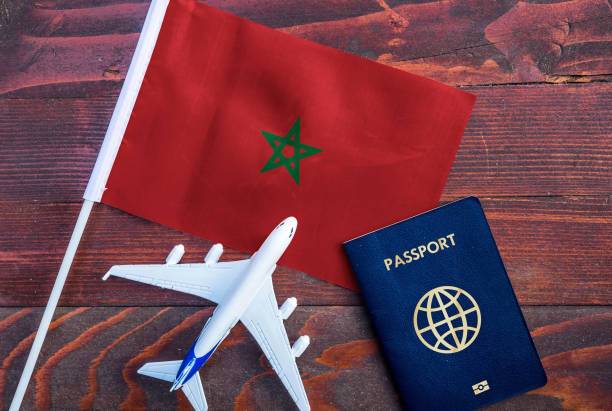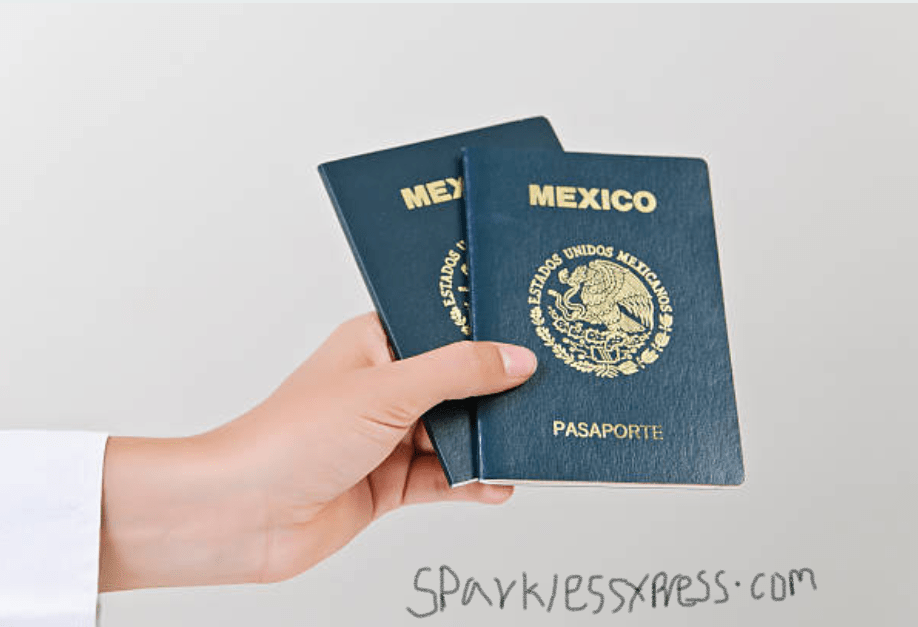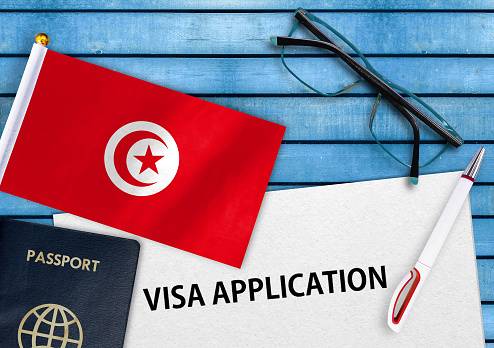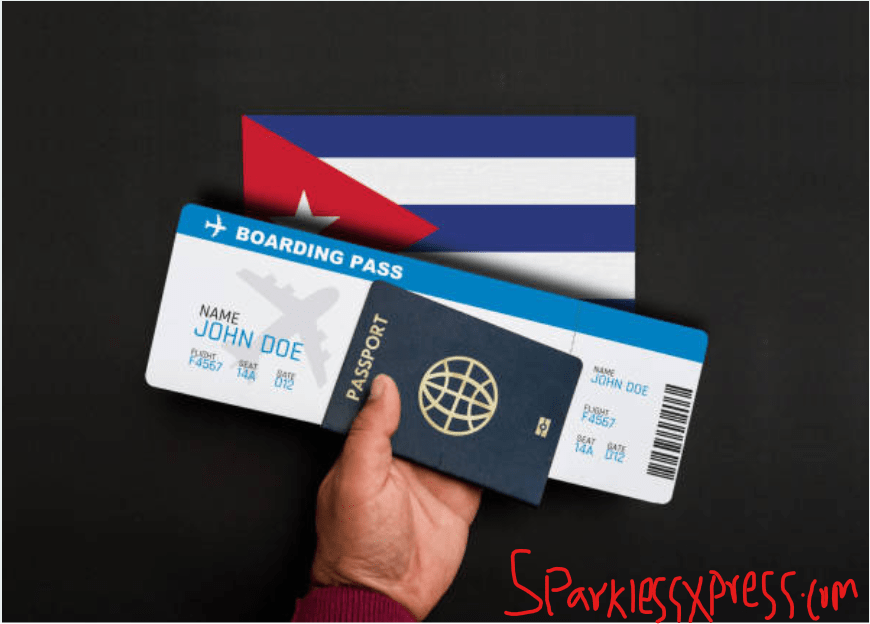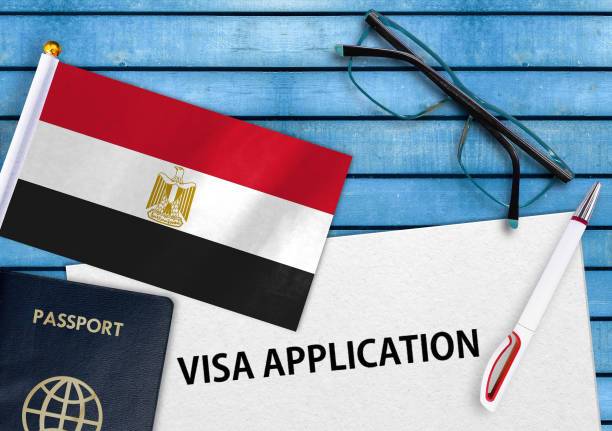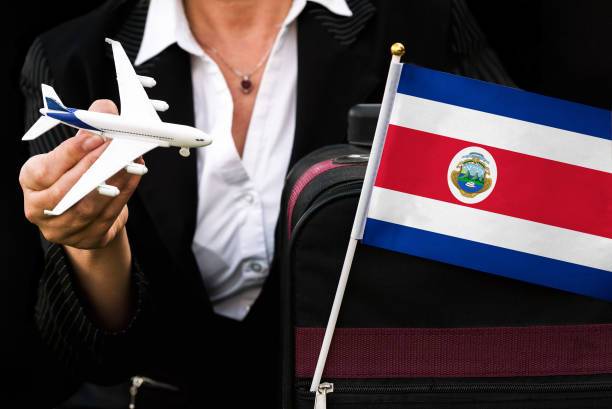If you must take a trip to most countries of the world, you will most likely need a visa. Depending on your nationality, you may or may not require a visa to enter Morocco. Citizens of several nations do not need to obtain a visa to enter Morocco, therefore they can visit without doing so. Included in this are the US, the EU, Japan, Australia, etc.
Important Facts About Morocco
Morocco is a nation in North Africa’s Maghreb region that has access to both the Atlantic and Mediterranean seas. It is regarded as one of the freest Arab nations and welcomes millions of visitors each year.
The Medina in Marrakech, Casablanca, Rabat’s magnificent Oudaias Kasbah area, and the country’s numerous exquisite mosques are a few of the most well-known Moroccan attractions.
There is truly something for everyone in Morocco, between the country’s culture and history, its beaches and mountains, and its easy access to the Sahara Desert.
Countries Exempt From Morocco Visa
Except where otherwise noted, citizens of the nations below do not require a visa to enter Morocco for stays up to 90 days:
- Algeria
- Andorra
- Argentina
- Australia
- Bahrain
- Brazil
- Canada
- Chile
- China
- Dominican Republic
- European Union countries
- Gabon
- Hong Kong
- Iceland
- Indonesia
- Ivory Coast
- Japan
- Kuwait
- Liechtenstein
- Macau
- Malaysia
- Mexico
- Monaco
- New Zealand
- Niger
- Norway
- Oman
- Peru
- Philippines
- Qatar
- Russia
- San Marino
- Saudi Arabia
- Senegal
- Singapore*
- South Korea
- Switzerland
- Tunisia
- Turkey
- United Arab Emirates
- United States
Nationals of Hong Kong and Singapore can only stay in Morocco for up to 30 days.
Person Holding Diplomatic Passports
Citizens of the following countries who have a diplomatic, official, or service passport can travel to Morocco without a visa for up to 90 days:
- Austria
- Bahrain
- Benin
- Bosnia and Herzegovina
- Bulgaria
- China
- Colombia
- Costa Rica
- Cyprus
- Czech Republic
- Dominican Republic
- El Salvador
- Equatorial Guinea
- Greece
- Guatemala
- Guinea Bissau
- Hungary
- India
- Italy
- Ivory Coast
- Jordan
- Kuwait
- Lithuania
- Luxembourg
- Mauritania
- Montenegro
- Netherlands
- Nigeria
- Oman
- Pakistan
- Peru
- Poland
- Portugal
- Romania
- Rwanda
- Sao Tome e Principe
- Senegal
- Singapore
- Slovenia
- Spain
- Switzerland
- Thailand
- The Gambia
- Turkey
- United Arab Emirates
- Uruguay
- Yemen
The Morocco Electronic Travel Authorization can only be obtained online by nationals of the following nations:
- Republic of the Congo
- Guinea
- Mali
If you are from one of the aforementioned nations, you can complete the entire process of getting the electronic authorisation online. You must print your application when it has been reviewed and approved so that you can present it at the Moroccan point of entry as well as when you depart.
The Morocco ETA is accessible from any location in the world.
How to Travel to Morocco if I Don’t Need a Visa
If you are from one of the countries listed above, then you don’t have to apply for a Morocco visa before you travel. Instead, you can simply travel with:
- Your passport, which must be valid for another six months and has at least one blank page for the entry stamp
- A return-flight ticket which is within the next 90 days
You can ask for an extension at the Moroccan Police Precinct that is most convenient if you want to extend your stay.
Types of Morocco Visa
There are three main types of visas for Morocco:
- Morocco Tourist Visa.
- Morocco Transit Visa.
- Long-Term Morocco Visa.
Morocco Tourist Visa
The short-term Morocco Visa, sometimes referred to as a Morocco Tourist Visa, is given to nationals of countries that require visas who want to visit Morocco for a short period, for purposes including, but not limited to:
- Business
- Personal visit
- Attending a cultural or academic event, such as a conference
- For sports events
- For journalism
- For medical treatment
Tourist visas for Morocco are available for single or multiple entries, with a 90-day maximum stay permitted. However, some nations are permitted entry without a visa, so not everyone needs to apply for one before traveling to Morocco.
Morocco Transit Visa
You need a Morocco Transit Visa if:
- You will transit through the territory of Morocco on your way to a third country
- You typically need a Morocco visa
The Morocco Transit Visa can be issued for one or two transits, allowing you to stay in Morocco for no more than 72 hours.
Morocco Long-Term Visa
Foreign nationals who wish to enter Morocco permanently, such as for employment or to be with family, are granted a long-term visa.
It has a three-month maximum validity period, just like the tourist visa. The Moroccan General Directorate of National Security’s competent agencies will accept applications for a Residency Card (Carte de Séjour) from holders of this sort of visa, nevertheless. If you are coming in on a Morocco Tourist Visa, you cannot apply for residency.
The Morocco long-term visa is divided into several subtypes, such as:
- Morocco Work Visa, issued to foreigners who find a job in Morocco (a work permit is also needed)
- Morocco Student Visa, issued to foreigners who want to pursue their studies in a Moroccan educational institution
- Morocco Visa for Family Reunification, issued to foreigners wanting to join a family member who is living in Morocco
Morocco Visa Requirements
The required documents for a Morocco visa application are the following:
- The Morocco Visa Application Form.
- Your passport and photocopies of your passport.
- Passport-size pictures.
- Return flight ticket.
- Proof of accommodation.
- Proof of sufficient financial means.
- Travel insurance.
- Proof of paid Morocco visa fee.
- If you are traveling for business:
- Letter of Invitation from the company you will visit
- A recommendation from the appropriate Ministry (for public business)
- If you will be attending a conference:
- Invitation from the organizers of the event
- If you’re a governmental worker: Your Mission Order
- If you are a journalist, traveling for work:
- Prior approval from the governmental authority in charge of Communication
- Approval to film in Morocco from the Ministry for Foreign Affairs and International Cooperation
- A list of all the filming equipment you’re bringing with you
- If you are traveling to attend a cultural or sporting event:
- Invitation from the Moroccan department organizing the event
- In case the organization is a private one, the invitation has to be endorsed by the relevant Ministry
- If you are traveling to seek medical treatment in Morocco:
- Your medical certificate
- Proof you can afford the hospital costs
- Proof of admission into the Moroccan hospital
- For all Morocco long-stay visas:*
- Proof of long-term accommodation in Morocco, such as a tenancy agreement or student housing
- Criminal record, obtained from police authorities in your country of residence
- A medical certificate, proving you are medically fit
- For Morocco Work Visa:
- Copies of your employment contract, certified by the Ministry of Education
- For Morocco Student Visa:
- Proof of enrollment into the educational institution
- Proof of paid tuition fees
- Proof of your financial means during the study period
- Letter from a guarantor in Morocco, stating they will cover your accommodation and financial expenses and cover your repatriation costs, if necessary.
- For Morocco Family Visa:
- Proof of family relationship, such as a marriage certificate for spouses, birth certificate for parents-children, etc.
You must apply for a Residence Card (Carte de Sejour) from the neighborhood Prefecture de Police within three months of entering Morocco on a long-term visa.
These papers must accompany your application when you seek for a visa to Morocco. The supporting documentation you provide is used to persuade Moroccan visa authorities that you qualify for a visa.
Depending on your nation, the purpose of your trip, and the length of your stay, you may need a different visa for Morocco.
Application Form For Morocco Visa
The first document you need is a Morocco Visa Application Form. The application form is available for online download on the website of the Moroccan embassy or consulate where you are applying, or you may pick one up in person there.
The application form has around 30 questions, including:
- Your name, sex, and age
- Your nationality and place of residence
- Passport information
- Your profession
- The details of your travel
- Whether you have had any previous visas for Morocco
- Contact information
You must complete the application form completely and truthfully, then sign it before enclosing it with the other documents.
Passport
A current passport is the most important criterion for Moroccan visas. Because the Moroccan authorities will attach your visa there, you should provide your original passport together with your other supporting documents. Your passport must have 1-2 blank visa pages and be good for at least another six months.
The essential pages of your passport, including the one with your personal information, the dates of issue and expiration, and any previous visas, should also be submitted as clear photocopies.
Passport-size pictures
You also need about four recent pictures of yourself. The Morocco visa photo requirements are as follows:
- Size: 35mm x 45mm
- Background: Light grey or light blue
- Colored
- You must have a neutral facial expression, staring ahead
- Do not wear glasses
- Do not wear headgear, unless it is for religious purposes (even so, make sure it does not cover your facial features)
- The pictures must be of high quality, meaning no glare, no under- or over-exposure, no blurriness, and no editing
- The pictures must be printed on good-quality photo papers
Return flight ticket
The return airline ticket is another prerequisite for a visa to Morocco. You must have a scheduled, 90-day flight that has been booked or paid for (or for however long your visa is issued).
This is to demonstrate to the authorities responsible for issuing visas that you intend to return to your country afterward.
If you don’t intend to travel back to your home country, an alternative is to add a ticket for a subsequent flight.
Proof of accommodation
You must also include proof of accommodation in Morocco. This can be a hotel reservation or another type of tourist accommodation.
Or, if you’re going to stay with a host, include a notarized letter of invitation from them.
Proof of sufficient financial means
You may be required to submit proof you have sufficient financial means to cover the duration of your stay, for example in the form of bank statements.
Travel health insurance
Anyone who travels to Morocco is advised to obtain travel insurance. This being said, not every Moroccan representative office will require that you submit proof of travel health insurance for Morocco along with your visa application, but they might. Morocco is just one of the countries in the world that require travelers to obtain travel insurance as a part of their visa application.
Proof of paid Morocco visa fee
Depending on where you’re applying, the method of payment for a Moroccan visa also changes. You may be required to pay in cash at the embassy or consulate, or through a bank transfer beforehand, in which case, you will need the payment receipt.
The visa fees for Morocco are as follows:
- For a single entry (up to 90 days): DH220 (appx. $23)
- For two entries (up to 90 days): DH330 (appx. $34)
- Transit visa: DH170 (appx. $18)
Morocco Visa Document Guidelines
You will have to legalize several of your documents, especially if you are applying for a long-term visa and residence card. The documents you have to legalize include civil status documents, academic qualifications and diplomas, the certificate of police clearance, and even your passport in some cases.
You can legalize the documents either by an Apostille Stamp (if you’re from a country included in the Apostille Convention) or at a Moroccan Consulate or Embassy.
Additionally, you will most likely have to translate several of your documents, into Hetherington Arabic, English,h or French. Consult the Moroccan embassy/consulate for more specific language requirements.
READ: United Nations Internship 2022 | Apply Now
How to Apply for a Morocco Visa
You must apply for a visa to Morocco at a Moroccan diplomatic mission in your nation. Depending on your nation and the Moroccan representative office, the precise application procedure varies. However, the following can be said to sum it up:
- Make an appointment at the Morocco consulate or embassy.
- Complete the Morocco visa application form.
- Gather the required documents.
- Submit them to the Moroccan embassy or consulate.
- Pay the visa fee.
- Wait for the Morocco visa to be processed.
- Get the visa.
Make an appointment
You might be able to schedule an appointment online, but you might also need to phone or show up in person depending on where you’re applying from.
If you don’t have an appointment, the majority of representative offices won’t accept your application.
However, a few Moroccan embassies have contracted with private companies to handle their visa applications. If so, you might need to get in touch with the appropriate visa application center to begin the Morocco visa application procedure.
Complete the Morocco Visa Application Form
The embassy or consulate where you apply will have an application form available, or you can download one from their website.
The Morocco Visa Application Form must be filled out completely and honestly before being signed. If it asks for one, you might also need to submit a photo of yourself.
Gather the required documents
Along with the application form, you must submit several other documents that support your visa application.
Submit the application
Once you have all the required documents, you have to submit them to the Moroccan embassy or consulate. In most cases, you have to submit them yourself, in-person.
However, depending on the country and the specific situation, you may be able to submit your application through a legal representative or by mail. If you apply by mail, you also have to include a prepaid, self-addressed special delivery envelope so they can return your passport.
You have to ask the office in which you’re applying for more details regarding visa application submission.
Pay the Morocco visa fee
At the time of application, you also have to pay a visa processing fee. The Morocco visa fees are as follows:
- For a single entry (up to 90 days): DH220 (appx. $23)
- For two entries (up to 90 days): DH330 (appx. $34)
- Transit visa: DH170 (appx. $18)
Processing Time for Morocco Visa
The average processing time for a Moroccan visa is two weeks (10 business days), however, individual circumstances may necessitate longer processing times. The processing period could be longer, for instance, if you are missing any required papers or if it is a busy season of the year.
Also, keep in mind that it could take longer for your visa to be processed if you have a non-standard travel document.
Receive the Morocco visa
If your application is approved, the visa-issuing authorities will affix a Morocco visa sticker to your passport, allowing you to travel to Morocco.
If you applied in person, you have to go pick up your passport. If you applied by mail, the Moroccan embassy/consulate will mail the passport back to you.
How to Apply for a Morocco Visa if There is no Moroccan Diplomatic Representation in Your Country
If there isn’t a Moroccan embassy or consulate near you, you should check to see if the Moroccan government has contracted out the submission of visa applications to another diplomatic post there or a visa application service.
You might need to submit your application directly to the Moroccan Ministry of Foreign Affairs and International Cooperation in Rabat if this also does not apply.
If your application is accepted, you can submit it by mail and pick up your visa at the airport.
Can I Apply for a Morocco Visa On Arrival?
No, you cannot. A Visa On Arrival is not accessible for Moroccan citizens and visitors. Unless you are excluded from needing a visa, you must get any necessary visas before leaving. Only nationals who do not require a visa can go to Morocco without one.
How Long is a Morocco Visa Valid For?
A visa for Morocco can be obtained for a single entry or numerous entries, and its validity is limited to 90 days.
Both a long-term visa and a tourist visa for Morocco are valid for the same amount of time, however,r the latter enables the bearer to apply for a Residence Card once they have entered the country, whilst the tourist visa does not. Even if you have a long-term visa, you must depart after three months if you don’t extend your stay and obtain a residence card.
Can I Extend a Morocco Visa?
If you have a Morocco Tourist Visa that you would like to extend beyond 90 days, you must request a Visa Extension at the nearest Police Precinct in Morocco.
Applying for a Morocco Visa in India To apply for a Morocco visa from India, you have to visit a Morocco Visa Application and Information Center (MVAIC), which operates under the Cox & Kings Global Services (CKGS). The Morocco embassy in India has outsourced visa submissions to CKGS.
There are MVAIC centers in New Delhi, Mumbai, Kolkata, Chennai, Ahmedabad, Pune, Goa, Cochin, Hyderabad, and Bangalore.
If you need more information, you can contact the Morocco Embassy in New Dehli or the Moroccan Honorary Consulate in Mumbai.
Applying for a Morocco Visa From the UK
You do not need a visa to enter Morocco if you are a citizen of the UK and currently reside in the UK.
However, if you are a resident of the UK and you are from a nation that requires a visa, you must apply for a Moroccan visa at the Moroccan Consulate General in London.
You cannot apply at the Moroccan consulate in London if you are on a tourist visa for the UK. You have to apply for a visa from the nation where you are legally residing.
What are the Morocco Visa Requirements for US Citizens?
There are no visa restrictions at all for US citizens who want to visit Morocco for tourism or other short-term travel. US citizens, along with several other nationalities, are exempt from Morocco visa requirements and are permitted entry for up to 90 days with just their passport and a return airline ticket.
However, you must get a long-stay visa at one of the Moroccan diplomatic missions in the US if you intend to visit for more than 90 days, such as for employment or a family reunion.
Applying for a Morocco Visa From the USA
If you are a legal resident of the US, and you are a national of a visa-required country, then you may apply for a Morocco visa at the Morocco Embassy in Washington, D.C, or the Morocco Consulate-General in New York.
